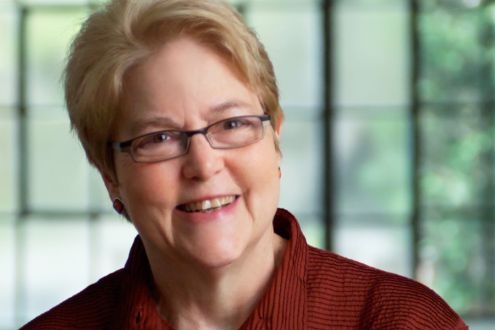The Ongoing Impact of the 1995 Beijing Conference
 Charlotte Bunch
Charlotte Bunch
The Beijing Intergovernmental Conference (and the NGO Forum that accompanied it) was the largest UN world event held to date. But it did not come out of nowhere. It was the culmination of 20 years of interaction among UN bodies, national governments, and a growing global women's movement that became visible during the decade between the first UN World Conference on Women in Mexico City in 1975 and the Nairobi Third UN Women's Conference in 1985.
As feminism and women's movements emerged globally in most of the world, the UN World Conferences became places to meet other women internationally pre-internet. The feminist focus began mostly on the civil society parallel events, but as we saw government's attention to women as a growing force for change, feminists formed caucuses to influence the official agenda too.
It was an exciting time from 1975 to 1995, as the UN and nonaligned movements allowed us to imagine beyond Cold War divisions & toward building North-South feminist alliances, even as we experienced and learned from divisions and differences among us.
Women in larger numbers learned to lobby governments—at home and at the UN—often first through the UN and then back at home. It was a challenging time, but feminists began to be taken seriously beyond tokenism in the process. I see it as a breakthrough in two ways:
- The UN became a place to put issues primarily affecting women on the global AGENDA that were not there before, like violence against women and reproductive and sexual rights, and to say that these so-called "women's issues" should be of concern to all.
- We also brought women's/feminist perspectives ... beyond just 'women's issues" onto other important agendas. Gender integration became a way of addressing all issues from feminists' perspectives on development, peace, human rights, transportation, climate, etc.
From Nairobi 85 to Beijing 95: Feminists organized across regions to bring our perspectives into many UN arenas. The most obvious was the ICPD (International Conferences on Population and Development), where feminists helped move the focus from population to women's reproductive rights in Cairo in 1994. In 1992, women's caucuses at the Earth Summit in Rio linked gender to issues of the environment.
For the growing "women's rights are human rights" movement that gained attention in the early 1990s, our breakthrough was at the UN World Conference on Human Rights in Vienna in 1993, where women's rights were acknowledged as universal human rights, and violence against women in war, in the community, and at home was addressed.
The Beijing BPFA was a triumph of all these strands as it linked women's rights as human rights in multiple areas & reflected many feminist views on the economy and other mainstream areas. It also reflected the growth of global women's movements as a political force. These breakthroughs were not without opposition, but the victory of 191 governments agreeing to the Platform left us exhausted and euphoric.
Since the Beijing accomplishments, challenges to it and backlash have been our story—at all the UN reviews of Beijing—+5, 10, 20, 25, and 30.
But as we talk about the backlash to gender equality and women's rights that is so prevalent in these tumultuous times, I want to remember: whenever change is happening that threatens to shift power and control, there is backlash. This is the history of the world!
Advances for women's human rights have been considerable in the last 50 years. And opposition to gender equality and human rights has grown in the UN and governments because we touched a nerve—the patriarchy. That opposition has also grown against other marginalized people—racially, by gender and class, and by other factors.
But only coalitions that defend all human rights, not at the expense of others, will prevent this backlash. I see the coalitions and movements that will counter this backlash in the actions people are taking every day and everywhere in the US and around the world.
This is my hope for the future. And hope does not come out of the sky. Hope is a daily practice that we build. I see that hope in the faces of so many people, especially young people today and I believe in it.
By Charlotte Bunch
Charlotte Bunch is an American feminist author and organizer in women's rights and human rights movements.



